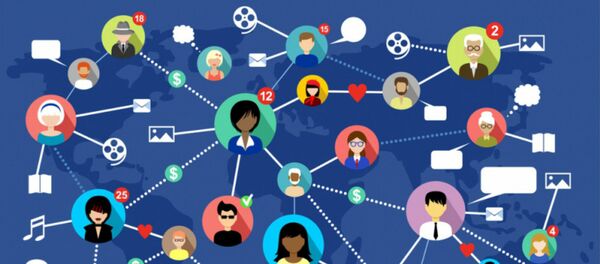In the 1990s, with the appearance of search engines such as Yahoo and Altavista, many users required machine translation, for which they used services like Babelfish. Computers at that time mostly relied on dictionaries which used simple "if-then" rules and high-level object-oriented logic, which made it difficult for them to learn new things.
Social media opened a new door of opportunity for computer scientists, who were working on sub-symbolic machine learning algorithms.
In 2011 Facebook staff started feeding the company's AI with user-generated texts and images to teach its neural network new skills. Facebook representative Alan Cooper told Sputnik that currently the social media platform is capable of working with more than 50 different languages.
We actually run tons of AI and machine learning algorithms every day on Facebook. Some of those, they are most used every day actually in translation. We have over 800 million people using translation once every month. And then we also have over 2 billion translations happening every day on facebook.com.
Facebook's handling of user content sometimes has led to criticism from online privacy activists.
In October of 2016 Facebook Messenger and WhatsApp, which is also owned by Facebook, were named the most secure chat platforms by Amnesty International. Other human rights watchdog – Electronic Frontier Foundation — didn't agree and said that there is a number of privacy issues in both programs. However, the company's representative Alan Cooper says that Facebook does a lot to educate users about privacy decisions on the platform.
We heavily invest and believe in privacy. We have an entire privacy center on Facebook that makes sure that every user is very able and educated on what privacy decision they are making on a platform. And in terms of stuff we do we have more of a signal test instead of looking at every single word and understanding every single thing.
We'd love to get your feedback at radio@sputniknews.com.
Have you heard the news? Sign up to our Telegram channel and we'll keep you up to speed!






